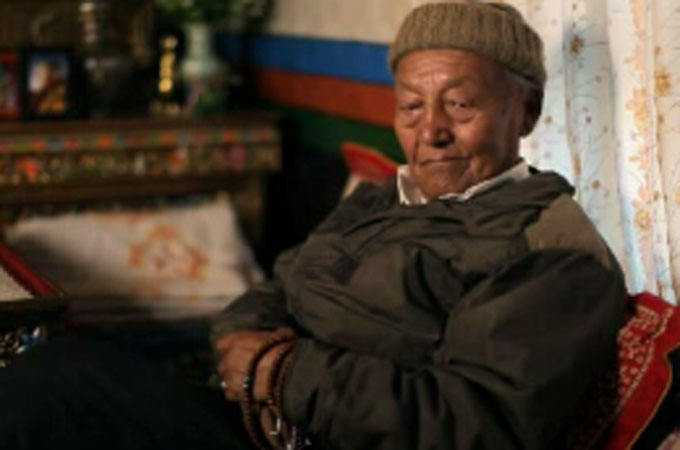
Profile: King Jigme Palbar Bista
Mustang’s king remains the symbol of Tibetan Buddhist cultural preservation despite Nepal’s annexation of his kingdom.
 |
| Bista accepted Kathmandu’s request for his resignation in 2008, but vowed to continue preserving Tibetan culture |
Jigme Palbar Bista, the last king of the remote kingdom of Mustang in Nepal’s Himalayas, was born in around 1930 in Lo Manthang, once the capital of the former Tibetan kingdom of Lo. The youngest son of King Angun Tenzing Tandul, he inherited the throne in 1964.
After his private studies in southwestern Tibet, he married Sahiba Sidol Palbar Bista, a Tibetan royal, in 1950.
Keep reading
list of 4 itemsPalestinian Prisoner’s Day: How many are still in Israeli detention?
‘Mama we’re dying’: Only able to hear her kids in Gaza in their final days
Europe pledges to boost aid to Sudan on unwelcome war anniversary
The spiritual leader used much of his power to strictly preserve Tibetan Buddhist culture in Mustang and continues to do so, although the region was annexed by Nepal, which abolished the monarchy’s official status, in 2008.
When Barndev Gautam, Nepal’s deputy prime minister, was sent to Mustang to ask Bista to step down, the king accepted the government’s request, saying he would live as a civilian and work towards preserving Tibetan culture and Buddhism in Mustang.
Although the monarchy has been formally dissolved, the system still exists in four parts of Nepal, namely Mustang, Bajhang, Salyan and Jajarkot. All the four districts are in the west of the country.
And Bista, who traces his lineage directly back to Ame Pal, the warrior who founded the kingdom in 1380, and will be the last in a line of kings that dates back to the 12th century, still stands as the symbol of Tibetan cultural preservation.
During his rule, he supported the resistance against Beijing’s occupation of the western region of Tibet, which was long considered a spiritual and cultural lifeline for Mustang, partly because the two regions share a common language.
In the 1960s, he allowed Tibetan Khampa warriors, trained by the CIA, to use Mustang as base for attacks on Chinese troops in Tibet.
He also limited the number of tourists allowed to visit the kingdom to 1,000 a year in an effort to preserve Mustang’s culture.
“I would prefer a little less than the 1,000 visitors a year who now come,” he said. “That way we can keep our culture intact.”
In an interview in 2002, he said he saw modern ways as a negative influence during his visits to Kathmandu, Nepal’s capital, particularly the effect of violent videos on children and the upsurge in street children, declaring: “I do not want that to happen in Mustang.”